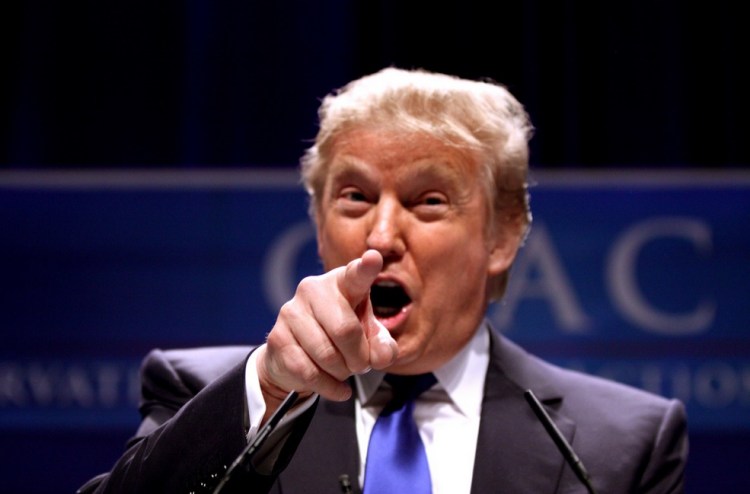The ever-angry Donald Trump said in a campaign speech today that, if elected, he would force Apple to manufacture its computers and other goods in the U.S. instead of in other countries.
Tech blog Gizmodo was quick to note how ridiculous that was, considering Apple needs the low-cost labor in China to make its products competitive and maximize profits. Trump’s stump speech at Liberty University in Lynchburg, Va., was about the issue — in between jabs at Hillary Clinton — of creating jobs in the U.S., as well as dealing with immigration and defense.
“We are going to do what’s good for the country,” Trump said. “We’re going to get Apple to build its damn computers in this country instead of other countries.”
Trump was short on specifics and didn’t say anything more about Apple in the speech. He did say the country has lost 10 million jobs and 50,000 manufacturing plants.
“We’re getting killed,” he said.
He said he would charge companies like Ford a tax if they don’t build in the U.S.
“I guarantee you they would say we will build our plant in the U.S.,” he said. “Free trade is good. But we have to do it. Or we won’t have a country left.”
It sounds like a dumb idea, given Apple’s own reputation for manufacturing, and for partnering with some of the best manufacturers on Earth, such as China’s Foxconn.
But I actually called for Apple to bring its manufacturing back to the U.S. in 2012, in the wake of a New York Times investigation into why Apple used contract manufacturers. At that time, President Obama asked then-CEO Steve Jobs what it would take for Apple to make its iPhone in the U.S. One of the answers that Apple gave about why it didn’t make products in the U.S. was the lack of engineering talent in the country. Apple said that it would take something like nine months to recruit enough engineers for a big factory. In China, the company could do that in 15 days.
But back in 2012, I pointed out the vast profits that Apple was making — it is only making more money now. And there could be clear benefits to Apple if it made the effort to bring manufacturing back to the U.S., as Google attempted to do with its manufacturing for Google Glass (which turned out not to be a good product).
I noted that Apple’s product engineers and designers either have to go to China to inspect the manufacturing lines or stay on the phone late at night working through problems. What if they could drive to the factory or speak to someone in the plant in the same time zone? It would vastly improve the quality of life for those engineers and designers, who are Apple’s best resource. Apple could probably do a better job of keeping its secrets, which seem to leak profusely from its Chinese supply chain, and it would no longer have to support jobs in a country where its goods are pirated in huge numbers.
Apple could also do a better job monitoring compliance with labor and environmental laws if its manufacturing was in the U.S. Shipping costs for the U.S., one of the company’s largest markets, would be lower. Increasing factory automation would put manufacturing costs on a more even level between China and the U.S.
Manufacturing jobs are, indeed, important to the economy: 1,000 new manufacturing jobs creates about 5,712 other jobs. Apple has previously pointed out that it is responsible for a huge amount of job creation in the U.S. In 2013, in a “token gesture,” Apple said it was making its Mac Pro computer in the U.S.
I think the arguments for Apple manufacturing more of its product domestically are still valid today. So Trump’s idea might not be as stupid as it sounds. Donald Trump and I might be on the same side on this one, though perhaps for different reasons. That’s a scary thought.
On a side note, it’s been pointed out that Donald Trump’s Menswear clothing is made in Mexico.


